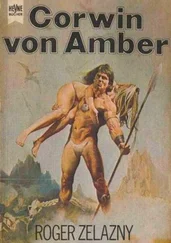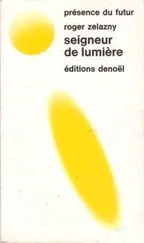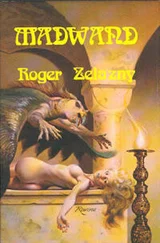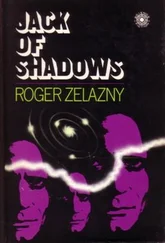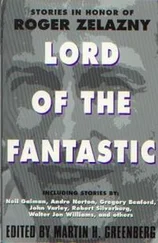Roger Zelazny - A Museum Piece
Здесь есть возможность читать онлайн «Roger Zelazny - A Museum Piece» весь текст электронной книги совершенно бесплатно (целиком полную версию без сокращений). В некоторых случаях можно слушать аудио, скачать через торрент в формате fb2 и присутствует краткое содержание. Год выпуска: 1963, Жанр: Старинная литература, на английском языке. Описание произведения, (предисловие) а так же отзывы посетителей доступны на портале библиотеки ЛибКат.
- Название:A Museum Piece
- Автор:
- Жанр:
- Год:1963
- ISBN:нет данных
- Рейтинг книги:4 / 5. Голосов: 1
-
Избранное:Добавить в избранное
- Отзывы:
-
Ваша оценка:
- 80
- 1
- 2
- 3
- 4
- 5
A Museum Piece: краткое содержание, описание и аннотация
Предлагаем к чтению аннотацию, описание, краткое содержание или предисловие (зависит от того, что написал сам автор книги «A Museum Piece»). Если вы не нашли необходимую информацию о книге — напишите в комментариях, мы постараемся отыскать её.
A Museum Piece — читать онлайн бесплатно полную книгу (весь текст) целиком
Ниже представлен текст книги, разбитый по страницам. Система сохранения места последней прочитанной страницы, позволяет с удобством читать онлайн бесплатно книгу «A Museum Piece», без необходимости каждый раз заново искать на чём Вы остановились. Поставьте закладку, и сможете в любой момент перейти на страницу, на которой закончили чтение.
Интервал:
Закладка:
Roger Zelazny. A Museum Piece
Forced to admit that his art was going unnoticed in a frivolous world, Jay Smith decided to get out of that world. The four dollars and ninety-eight cents he spent for a mail order course entitled Yoga—the Path to Freedom did not, however, help to free him. Rather, it served to accentuate his humanity, in that it reduced his ability to purchase food by four dollars and ninety-eight cents.
Seated in a padmasana, Smith contemplated little but the fact that his navel drew slightly closer to his backbone with each day that passed. While nirvana is a reasonably esthetic concept, suicide assuredly is not, particularly if you haven’t the stomach for it. So he dismissed the fatalistic notion quite reasonably.
“How simply one could take one’s own life in ideal surroundings!” he sighed, (tossing his golden locks which, for obvious reasons, had achieved classically impressive lengths). “The fat stoic in his bath, fanned by slave girls and sipping his wine, as a faithful Greek leech opens his veins, eyes downcast! One delicate Circassian,” he sighed again, “ there perhaps, plucking upon a lyre as he dictates his funeral oration—the latter to be read by a faithful countryman, eyes all a-blink. How easily he might do it! But the fallen artist—say! Born yesterday and scorned today he goes, like the elephant to his graveyard, alone and secret!”
He rose to his full height of six feet, one and a half inches, and swung to face the mirror. Regarding his skin, pallid as marble, and his straight nose, broad forehead, and wide-spaced eyes, he decided that if one could not live by creating art, then one might do worse that turn the thing the other way about, so to speak.
He flexed those thews which had earned him half-tuition as a halfback for the four years in which he had stoked the stithy of his soul to the forging out of a movement all his own: two-dimensional painted sculpture.
“Viewed in the round,” one crabbed critic had noted, “Mister Smith’s offerings are either frescoes without walls or vertical lines. The Etruscans excelled in the former form because they knew where it belonged; kindergartens inculcate a mastery of the latter in all five-year-olds.”
Cleverness! More cleverness! Bah! He was sick of those Johnsons who laid down the law at someone else’s dinner table!
He noted with satisfaction that his month-long ascetic regime had reduced his weight by thirty pounds to a mere two twenty-five. He decided that he could pass as a Beaten Gladiator, post-Hellenic.
“It is settled,” he pronounced. “I’ll be art.” Later that afternoon a lone figure entered the Museum of Art, a bundle beneath his arm.
Spiritually haggard (although clean-shaven to the armpits), Smith loitered about the Greek Period until it was emptied of all but himself and marble.
He selected a dark corner and unwrapped his pedestal. He secreted the various personal things necessary for a showcase existence, including most of his clothing, in its hollow bottom.
“Good-bye, world,” he renounced, “you should treat your artists better,” and mounted the pedestal.
His food money had not been completely wasted, for the techniques he had mastered for four ninety-eight while on the Path to Freedom, had given him a muscular control such as allowed him perfect, motionless statuity whenever the wispy, middle-aged woman followed by forty-four children under age nine, left her chartered bus at the curb and passed through the Greek Period, as she did every Tuesday and Thursday between 9:35 and 9:40 in the morning. Fortunately, he had selected a seated posture.
Before the week passed he had also timed the watchman’s movements to an alternate tick of the huge clock in the adjacent gallery (a delicate Eighteenth Century timepiece, all of gold leaf, enamel, and small angels who chased one another around in circles). He should have hated being reported stolen during the first week of his career, with nothing to face then but the prospect of second-rate galleries or an uneasy role in the cheerless private collections of cheerless and private collectors. Therefore, he moved judiciously when raiding staples from the stores in the downstairs lunch room, and strove to work out a sympathetic bond with the racing angels. The directors had never seen fit to secure the refrigerator or pantry from depredations by the exhibits, and he applauded their lack of imagination. He nibbled at boiled ham and pumpernickel (light), and munched ice cream bars by the dozen. After a month he was forced to take calisthenics (heavy) in the Bronze Age.
“Oh, lost!” he reflected amidst the Neos, surveying the kingdom he had once staked out as his own. He wept over the statue of Achilles Fallen as though it were his own. It was.
As in a mirror, he regarded himself in a handy collage of bolts and nutshells. “If you had not sold out,” he accused, “if you had hung on a little longer—like these, the simplest of Art’s creatures…But no! It could not be!
“Could it?” he addressed a particularly symmetrical mobile overhead. “ Could it?”
“Perhaps,” came an answer from nowhere, which sent him flying back to his pedestal.
But little came of it. The watchman had been taking guilty delight in a buxom Rubens on the other side of the building and had not overheard the colloquy. Smith decided that the reply signified his accidental nearing of Dharana. He returned to the Path, redoubling his efforts toward negation and looking Beaten. In the days that followed he heard occasional chuckling and whispering, which he at first dismissed as the chortlings of the children of Mara and Maya, intent upon his distractions. Later, he was less certain, but by then he had decided upon a classical attitude of passive inquisitiveness.
And one spring day, as green and golden as a poem by Dylan Thomas, a girl entered the Greek Period and looked about, furtively. He found it difficult to maintain his marbly placidity, for lo! she began to disrobe!
And a square parcel on the floor, in a plain wrapper. It could only mean…
Competition!
He coughed politely, softly, classically…
She jerked to an amazing attention, reminding him of a women’s underwear ad having to do with Thermopylae. Her hair was the correct color for the undertaking—that palest shade of Parian manageable—and her gray eyes glittered with the icy-orbed intentness of Athene.
She surveyed the room minutely, guiltily, attractively…
“Surely stone is not susceptible to virus infections,” she decided. “‘Tis but my guilty conscience that cleared its throat. Conscience, thus do I cast thee off!”
And she proceeded to become Hecuba Lamenting, diagonally across from the Beaten Gladiator and fortunately, not facing in his direction. She handled it pretty well, too, he grudgingly admitted. Soon she achieved an esthetic immobility. After a period of appraisal he decided that Athens was indeed mother of all the arts; she simply could not have carried it as Renaissance nor Romanesque. This made him feel rather good.
When the great doors finally swung shut and the alarms had been set she heaved a sigh and sprang to the floor.
“Not yet,” he cautioned, “the watchman will pass through in ninety-three seconds.”
She had presence of mind sufficient to stifle her scream, a delicate hand with which to do it, and eighty-seven seconds in which to become Hecuba Lamenting once more. This she did, and he admired her delicate hand and her presence of mind for the next eighty-seven seconds. The watch man came, was nigh, was gone, flashlight and beard bobbing in musty will o’ the-wispfulness through the gloom.
“Goodness!” she expelled her breath. “I had thought I was alone!”
Читать дальшеИнтервал:
Закладка:
Похожие книги на «A Museum Piece»
Представляем Вашему вниманию похожие книги на «A Museum Piece» списком для выбора. Мы отобрали схожую по названию и смыслу литературу в надежде предоставить читателям больше вариантов отыскать новые, интересные, ещё непрочитанные произведения.
Обсуждение, отзывы о книге «A Museum Piece» и просто собственные мнения читателей. Оставьте ваши комментарии, напишите, что Вы думаете о произведении, его смысле или главных героях. Укажите что конкретно понравилось, а что нет, и почему Вы так считаете.

